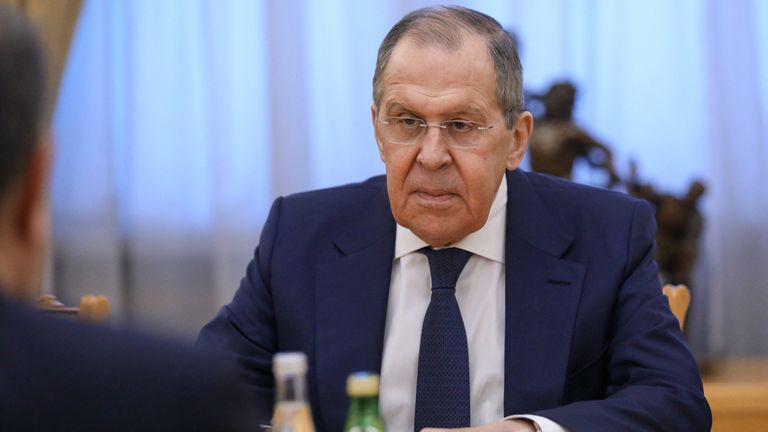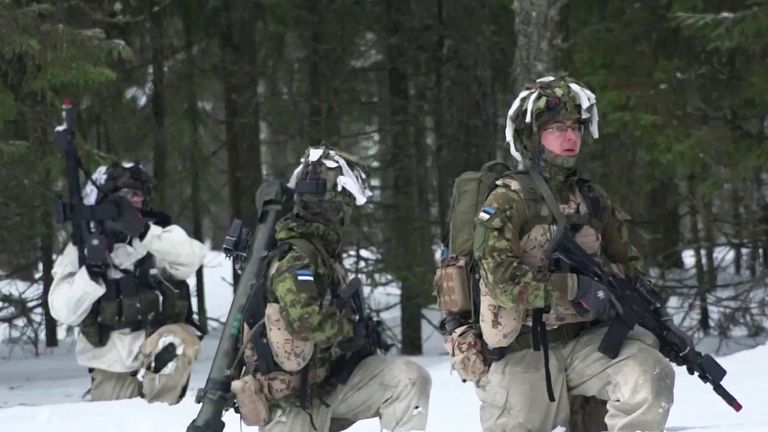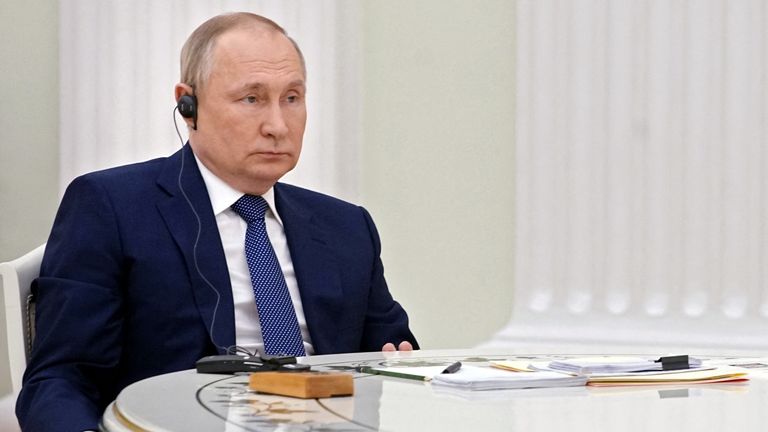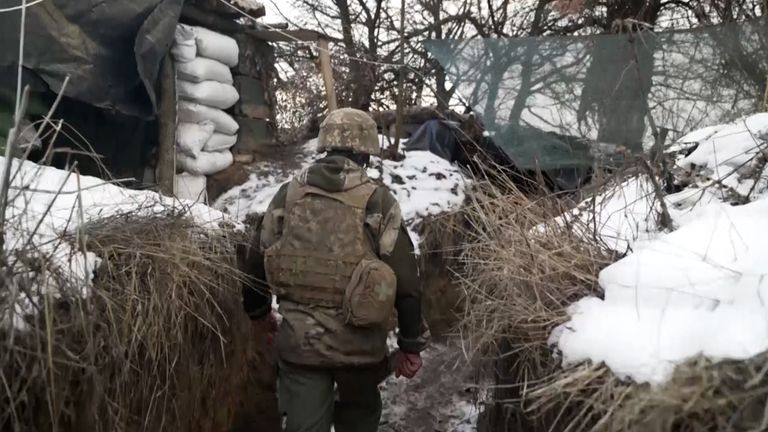The last foreign secretary to visit Russia was Boris Johnson in 2017. Things weren’t easy then and that was before the Salisbury poisonings. They are a lot harder now.
Liz Truss will meet a wily, combative and much more experienced counterpart in Sergei Lavrov – who takes no prisoners.
Whether they manage to make any diplomatic headway depends on what the foreign secretary says once she’s delivered her main message – which the Russians know already – that they must stop their aggression and de-escalate and that the UK has a powerful sanctions package ready to go if they don’t.
That sanctions regime was supposed to be in place by now; it’s not. That removes one barb from the Truss armoury.
Plus there’s the long-promised Economic Crime Bill, which languishes awaiting a hearing years after the Russia Report advised the government to take urgent action.
London is flooded with Russian wealth but most of it at this late stage has very little to do with President Vladimir Putin or the people who influence his thinking. That ship sailed long ago.
On the more immediate issue at hand – if an answer is to be found to Russia’s security concerns whilst upholding Ukrainian sovereignty, it will require creative diplomatic solutions which the UK may or may not play one small part of.
All bark and no bite from Liz Truss is unlikely to cut it.
“There are reasons for the Russians to actually have genuine concerns about the way the world and European security architecture is structured,” says Mark Galeotti, director of Mayak Intelligence and an expert on Russian security affairs.
“Just simply telling the Russians that NATO is a defensive alliance, you have no security concerns, is not going to convince them.
“We may well think it is ridiculously overblown but unless we’re actually willing to hear them out, they will have no incentive to continue the talks. And if we push Putin to the situation where essentially he is faced with a choice between escalation and capitulation, he’s very unlikely to capitulate.”
Two-day ministerial double-act
This is the first in a two-day ministerial double-act. Defence Secretary Ben Wallace will meet his Russian counterpart, Sergei Shoigu, in Moscow on Friday.
While Mr Lavrov is a seasoned diplomat, he still essentially conveys the messages up. Mr Shoigu is legitimately close to the Russian president and that’s not just because of shared, shirtless hunting holidays in Siberia. So both these meetings could pack a punch if each side feels there’s enough in them to keep talking.
Then there are the other, harder nuts to crack – the so-called siloviki or security men around Mr Putin who may be watching but who the UK won’t have access to.
Men like the head of the Security Council, Nikolai Patrushev, or the heads of the security agencies, the SVR and FSB respectively – Sergei Naryshkin and Alexander Bortnikov, who rose up with Mr Putin through the ranks of the KGB and hold in the main part a hardline, anti-liberal, anti-western agenda.
For them, it’s the United States which counts (for most of the political elite, in fact). They may even see further escalation as beneficial.
“If tomorrow, Russia goes to war with Ukraine and faces sanctions and huge risks for the economy, from my point of view, it won’t really scare the siloviki because they believe that this will make the relationship with the US more frank and open,” says Tatiana Stanovaya, who is an expert on Russian politics and founder of political think tank R.Politik.
“They will have more opportunities to deal with the United States and to create, inter-body shadow contacts whilst sidelining the diplomats.”
UK playing hardball wins ‘respect’ in Russia
The UK holds a specific position vis-a-vis Russia – not Europe, it is more hardline than Europe, but not quite the United States either.
“There is a sense the UK plays hardball and that actually wins you a certain amount of respect in Russia,” Mr Galeotti says. “In some ways, it’s liberated too by the fact that UK-Russian relations really have very little way down further to go.”
The foreign secretary came in for criticism for even coming to Moscow but that is the job of the diplomat and the UK cannot encourage Russia to take the diplomatic path whilst refusing to engage in it.
Their meeting will be short – a little over an hour, not exactly enough for peace in our time. At least though with Mr Lavrov’s fluent English, there will be no time or nuance lost to translations.
Perhaps just long enough to get beyond the mutual recriminations and see where the meeting takes them.




